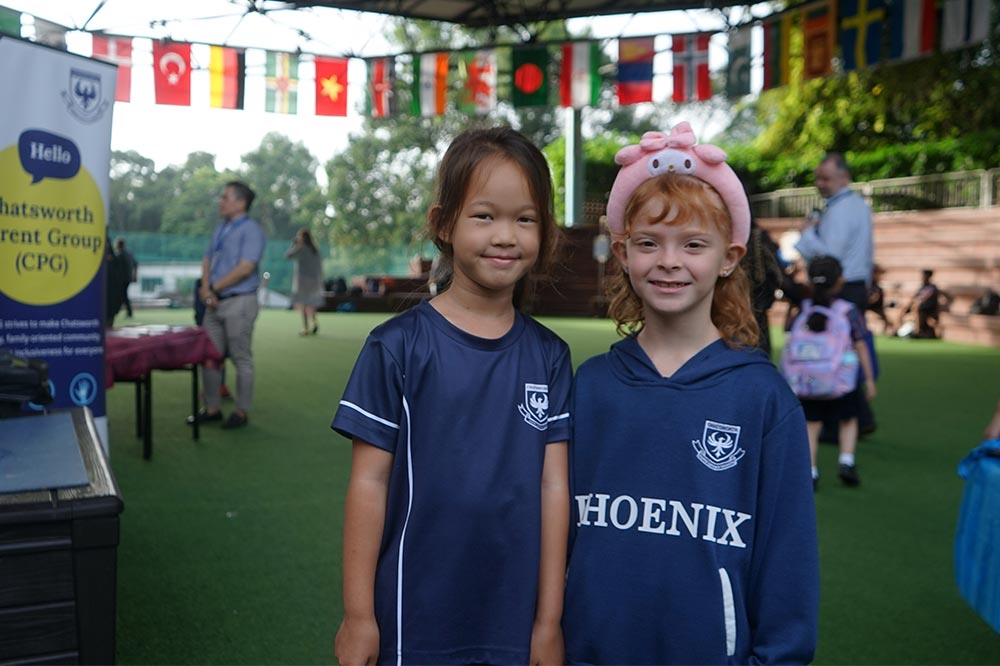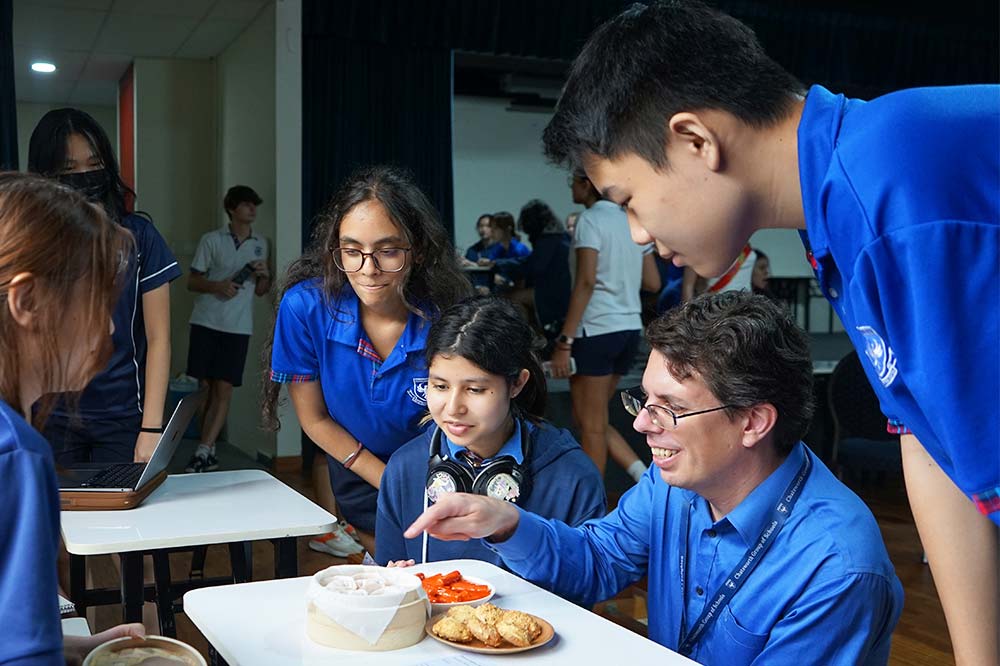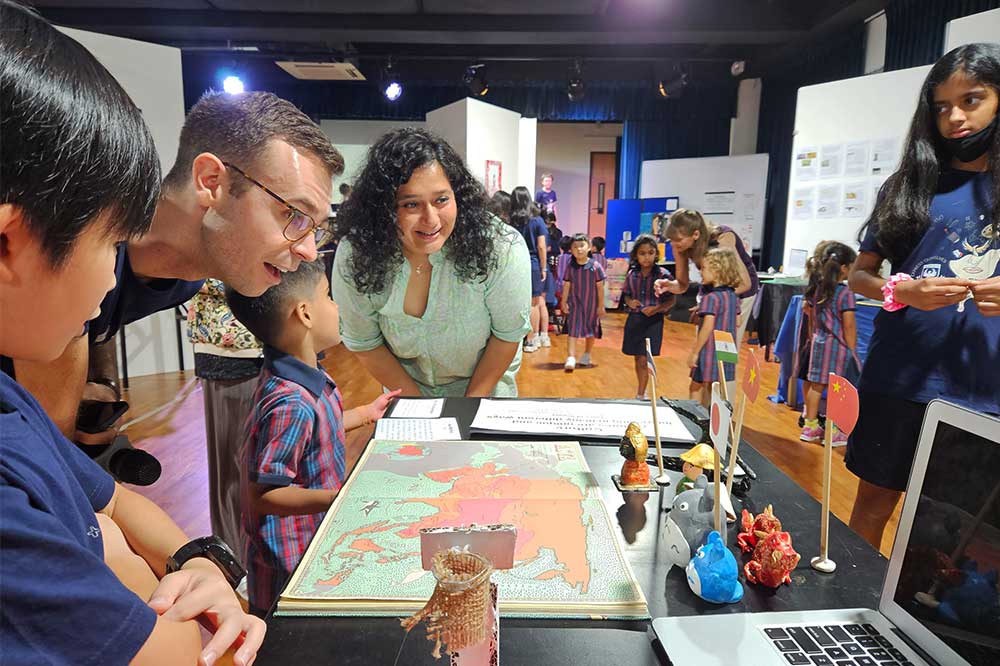Your Guide to Selecting an International High School
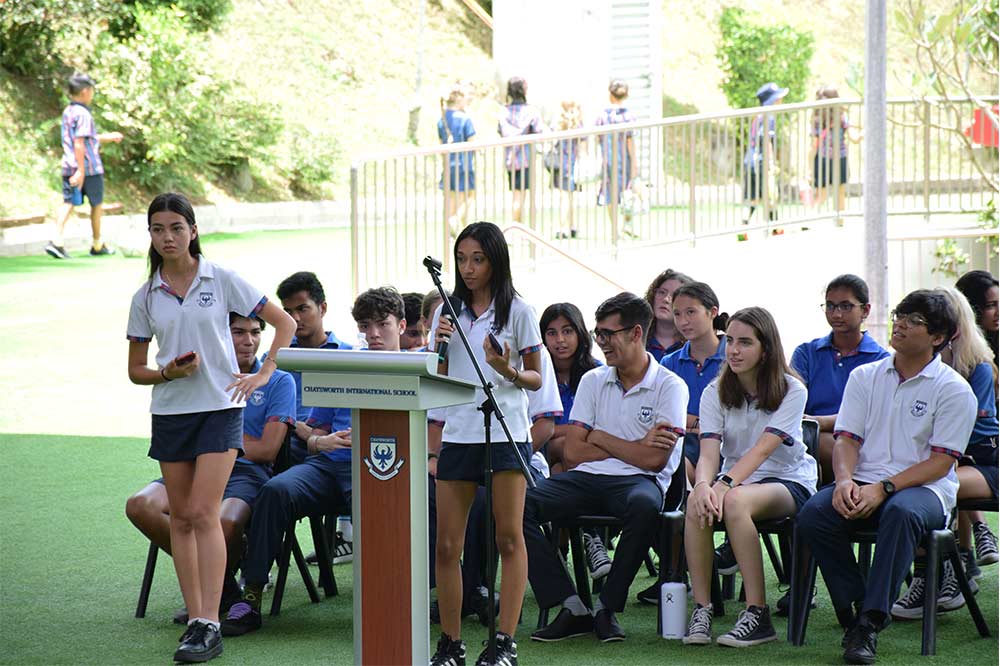
Selecting the ideal international high school in Singapore is a pivotal decision for expatriate families, affecting not just the academic journey of their children but also their ability to integrate socially, develop personally, and seize future opportunities. Given Singapore's rich and diverse educational offerings, finding a school that aligns with your family's educational values, your child's unique learning preferences, and their future ambitions requires thorough research and thoughtful consideration.
If you're not quite sure where to even start, we've done the preliminary research just for you! This guide will highlight the several factors you should consider when choosing a high school for your child, as well as a few important administrative matters.
Factors to Consider When Choosing A High School
As you navigate the options available, several key factors emerge as critical to ensuring the best fit for your child's needs and ambitions. Here are a few crucial ones:
Accreditation
Accreditation serves as a critical indicator of a school's commitment to maintaining high educational standards. When an international high school in Singapore is accredited by globally recognised organisations, it signifies that the institution meets or exceeds the quality criteria set by the educational authority. Furthermore, accreditation means that the diplomas and qualifications students receive upon graduation are accepted and respected by universities and colleges around the world, smoothing the path to higher education.
When researching schools, consider those accredited by bodies such as the Council of International Schools (CIS), the Western Association of Schools and Colleges (WASC), or the International Baccalaureate Organization (IBO), which reflect a global benchmark of excellence.
Curriculum and Subjects Offered
At the heart of any school is its curriculum—the framework that guides what students learn and how they engage with the material. International high schools in Singapore offer a variety of prestigious programmes, each known for its unique approach to education and learning outcomes:
International Baccalaureate (IB) is renowned for its holistic approach, emphasising critical thinking, intercultural understanding, and a broad spectrum of knowledge.
A-Levels, a staple of the British education system, offer depth in specific subjects, preparing students for specialisation in higher education.
American Advanced Placement (AP) courses provide students with college-level academic challenges across a range of subjects, contributing to college credit in the United States.
When evaluating potential schools, consider how the curriculum aligns with your child's learning style, academic strengths, and future aspirations. A school that offers a wide variety of subjects can cater to diverse interests—from the sciences and mathematics to the humanities and arts—ensuring that your child can explore their passions and potential career paths. Additionally, some schools offer unique programmes or electives that might particularly appeal to your child's interests, such as technology, entrepreneurship, or environmental studies.
The choice of curriculum is more than just about academic achievement; it's about finding a programme that resonates with your child's curiosity, encourages their personal growth, and equips them with the skills needed for success in a rapidly changing world. As such, schools that provide a balanced curriculum, combining rigorous academic standards with opportunities for creative expression, physical activity, and community service, can offer a more enriching and fulfilling high school experience.
Language Options
In our increasingly globalised world, proficiency in multiple languages offers significant advantages. Families valuing linguistic diversity should look for schools offering strong language programmes that not only enhance proficiency in a second (or third) language but also deepen students' cultural understanding and appreciation. These programmes can range from immersive language classes to bilingual curriculums, providing students with the linguistic skills and cultural competencies needed to thrive in a global setting.
Class Size
The ratio of students to teachers in a classroom can greatly influence the quality of education and personal attention each student receives. Smaller class sizes are often associated with a more tailored educational experience, where teachers can focus on individual students' strengths and areas for improvement, facilitating a deeper understanding of the material.
When evaluating potential schools, consider the average class size and student-to-teacher ratio as indicators of the level of individual attention and support your child is likely to receive.
Facilities
State-of-the-art facilities are essential in enriching the educational journey, offering students a dynamic and interactive learning environment. Look for schools with well-equipped labs, sports complexes, art studios, and digital learning resources. Such facilities support a diverse curriculum, allowing students to pursue a wide range of interests and talents beyond traditional academics.
When considering an international high school, assess the quality and variety of its facilities to ensure they match your child's learning needs and extracurricular interests, promoting a well-rounded and engaging educational experience.
Student Support Services
The range and quality of student support services offered by an international high school are indicative of the school's commitment to student success and well-being. Academic counselling helps students navigate their course selections and academic pathways, while psychological support addresses emotional and social development, which is crucial for teenagers navigating the complexities of high school life.
Additionally, guidance in university admissions can demystify the process of applying to colleges and universities, providing valuable insights into how best to prepare and present one's application.
Cost
The financial aspect of choosing an international high school in Singapore is a major consideration for many families. Tuition fees at these schools can range significantly, reflecting differences in facilities, curricular offerings, and extracurricular activities. Many schools offer financial aid, scholarships, or flexible payment plans to help make education more accessible. For instance, at Chatsworth International School, we offer a full IB Diploma Programme scholarship valued at more than S$82,000 for exceptional students, which will pay 100 per cent of a student's school fees and provide the student with a new Macbook laptop.
Location
The geographical location of a school plays a significant role in the daily life and satisfaction of both students and their families. A school's location relative to your home can influence commuting times, participation in extracurricular activities, and even where you choose to live. Schools located in accessible areas with good public transport links or those offering dedicated school bus services provide added convenience, reducing travel stress and contributing to a better balance between school and family life.
Health and Safety
A safe and secure school environment is non-negotiable for parents entrusting their children to an educational institution. Effective safety policies, clear emergency procedures, and robust campus security measures are essential components of a school's commitment to student well-being. Investigating a school's approach to safety—from regular drills and staff training to secure campus access and emergency communication plans—provides peace of mind that the school is prepared to protect its students and staff in any situation.
Chatsworth was one of the first schools in Singapore to have staff trained to offer the Keeping Safe: Child Protection Curriculum (KS:CPC) to all students on campus so that they learn to understand their rights as children and how to protect themselves.
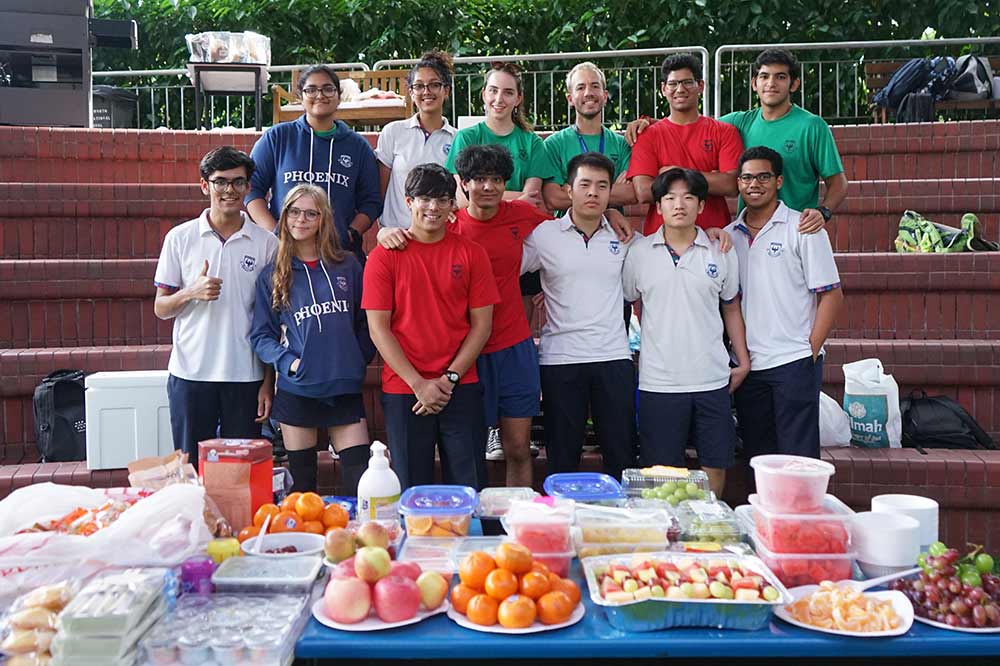
Cultural Adaptation and Community
Integrating into Singapore's rich culture presents a remarkable chance for expatriate students, particularly those in high school, to expand their worldviews. Singapore's diverse culture, a harmonious blend of traditions and modernity, provides a vibrant backdrop for students to learn and grow. International schools are instrumental during this transition, creating welcoming spaces that honour this cultural diversity. They introduce students to Singapore's heritage through orientation programmes, cultural immersion activities, and celebrations of national and international festivals, helping students appreciate the nuances of their new home.
For high schoolers, engaging in community service and cultural exchange clubs can deepen their understanding of local customs and enhance their adaptation to this multicultural environment. Schools encourage active involvement in events and collaborations with local communities, providing real-world contexts for cultural learning and integration.
Active involvement with parents’ associations and school events also helps families connect with others, easing their adjustment to life in Singapore. These interactions facilitate meaningful connections with other expatriate and local families, weaving a network of support that is invaluable for navigating life in a new country.
Options Post Graduation
Upon graduation, students can explore various post-secondary pathways. The IB Diploma, recognised for its comprehensive and challenging curriculum, is especially esteemed by universities globally as well as the local universities in Singapore, enhancing students' prospects for university admissions.
Others may also consider taking a gap year to recharge and refocus and think about the kind of education and career they want to pursue before starting college or university. IB graduates may also avail themselves of the scholarship opportunities at higher educational institutions, depending on the field of study, requirements and the scholarship award value.
Admission Process and Requirements
Gaining admission into an international high school in Singapore involves several critical steps. Prospective students must gather and submit a comprehensive package of documents, including previous academic records that highlight their academic achievements, and letters of recommendation that provide insight into their character and capabilities. Standardised test scores, such as those from the SSAT, ISEE, or country-specific examinations, may also be required to assess academic readiness.
Furthermore, many schools conduct interviews or require entrance tests to better understand the applicant's abilities and ensure a good fit between the student and the school's ethos. Being proactive and starting the application process early can significantly improve a student's prospects for admission by allowing ample time to meet all the school's requirements and deadlines.
Legal and Visa Requirements
For expatriate families looking to enrol their children in international schools in Singapore, navigating the legal and visa requirements is an essential step. Depending on the residency status of the family, students may need to secure a student pass or a dependent's pass to legally attend school in Singapore. Understanding these legal nuances early on can help families avoid potential obstacles, ensuring a smooth enrollment process.
Conclusion
Selecting the right international high school in Singapore is a decision that encompasses a range of considerations, from the academic environment and opportunities for further education to the nuances of admission procedures and cultural integration. By approaching this choice with diligence and thoughtful consideration of the curriculum, accreditation standards, facilities, and available student support services, parents can ensure that their child embarks on an educational journey that is both enriching and transformative. This careful selection process lays a solid foundation for the student's future success, both academically and personally, in the vibrant and multicultural landscape of Singapore.
If you're looking to enrol your child in an international high school in Singapore, Chatsworth International School represents an ideal blend of rigorous academic standards, a nurturing environment, and a richly diverse cultural community. At Chatsworth, we pride ourselves on offering a curriculum that not only meets international benchmarks of excellence but also supports each student's personal growth and cultural integration. Our dedicated faculty and comprehensive student support services ensure a seamless transition for expatriate families, fostering a sense of belonging and community among our students from various backgrounds.
We invite you to explore what makes Chatsworth International School a standout choice for your child's education. Book a campus tour with us today to witness firsthand the vibrant, supportive, and enriching learning environment we provide, setting the stage for your child's future success in Singapore's dynamic, multicultural landscape.


